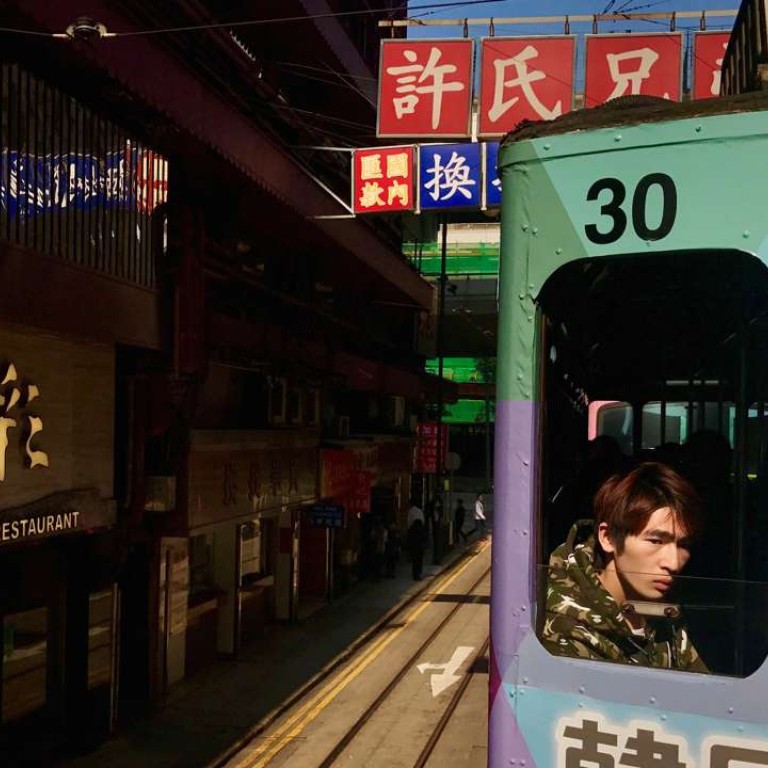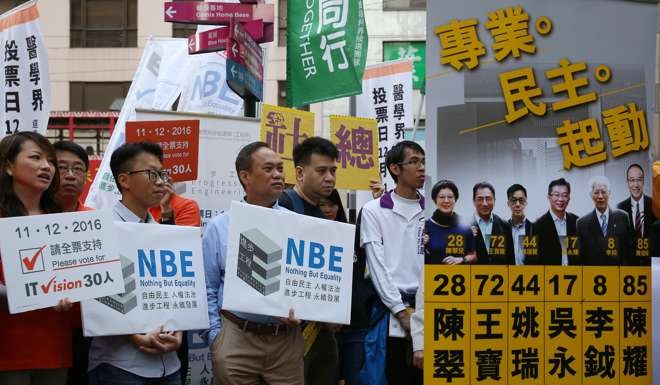
Let pragmatism guide the vote for Hong Kong’s next leader
Bernard Chan says the unexpected success of the pan-democrats in the Election Committee polls may give them an opportunity to cast the decisive vote, which they should use wisely
A lot depends on who is on the ballot. Let’s say there is one candidate who is clearly well qualified, has a good relationship with Beijing and scores well in the public opinion polls. He or she should be able to get a majority vote. But what if there are two or three candidates who are well qualified, and the pro-establishment camp is divided? Things could be different. This is the “kingmaker” scenario. Pan-democrats could be in a position to pick the winner. They could also have the power to veto a candidate.
It is not totally surprising that the pan-democrats made big gains in the professional constituencies, including sectors that have traditionally been pro-government. In some ways, it fits in with a global trend against establishment elite. Younger or less-qualified candidates have pushed out the older and more experienced ones.

Beijing and the art of surprise-free elections
Obviously, events over the past few years have affected these professionals. It seems that younger educated people are particularly unhappy with the way things are. The Legislative Council election in September – and various opinion polls – suggest this is the case across the community. It is not just a question of why architects, accountants or Chinese medicine practitioners are unhappy.

The solution lies with the next chief executive. That brings us back to the Election Committee – and the possible role of the pan-democrats using their expanded presence. Let us say there are two or three candidates; the pro-establishment vote is split, and no candidate can get more than 600 votes. The pan-democrats on the committee would be in a strong position. What should they do?
Remember: it will take only 150 nominations for a candidate to get on the ballot
Many would probably want to make one key demand of any candidate who wants their vote: a fresh attempt at constitutional reform and universal suffrage. This could be a problem. No candidate will be in a position to offer a deal that goes beyond the conditions set by the National People’s Congress Standing Committee in 2014. All they could promise would be the sort of reform package the pan-democrats voted down in Legco in June 2015.
However, what if the pan-democrats took a more pragmatic approach? What if they offered to support a candidate who pledged to deliver some significant measures to improve welfare, livelihood and quality of life?

Forget political reform, let’s focus on making people’s lives better
This could be a game changer. There are all sorts of possibilities. One would be to take firmer action to make housing more affordable. Others could be to revise spending priorities to boost health care and cut waiting times, improve elderly care, or provide more opportunities for the young. They could demand specific things like more pedestrianisation, cycle paths and so on.
The pro-establishment camp would probably be divided over livelihood-related proposals. This raises the question of whether some on the pro-government side would want to align themselves with pan-democrats. This scenario would force a lot of people to ask themselves how pragmatic they want to be.
Public opinion would probably be a deciding factor. A qualified candidate offering fresh, popular policies, and attracting some support from both camps, would probably score highly in opinion polls. This might sound impossible. But remember: it will take only 150 nominations for a candidate to get on the ballot.
Bernard Chan is a member of the Executive Council

